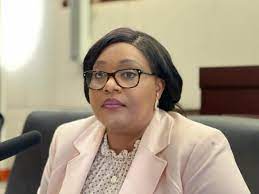The teaching profession, a noble and artistic endeavor, holds a crucial place in nation-building. In Liberia, teachers are required to possess certified qualifications, ranging from C-level to university degrees. However, the Liberian education system has been grappling with a significant challenge: the prevalence of volunteer teachers. These individuals, often found in public schools, teach without receiving a salary from the government. This phenomenon raises critical questions about the value placed on education and the well-being of those entrusted with shaping young minds. The existence of volunteer teachers stems from a complex interplay of factors. Some schools, particularly in remote areas, lack access to trained professionals, leading communities to rely on individuals with basic literacy skills to educate their children. In other cases, deceased teachers have not been replaced by qualified successors. Regardless of the cause, the presence of unpaid educators highlights a systemic issue within the Liberian education system.
While acknowledging the invaluable contributions of volunteer teachers, who have demonstrated remarkable dedication and sacrifice, a transition away from this unsustainable model is imperative. Education, the cornerstone of national development, cannot rely on unpaid labor. Just as other public servants receive due compensation for their services, educators, who mold future generations, deserve to be recognized and remunerated for their crucial work. Human resources are the most significant asset of any nation, and a well-functioning education system, staffed by qualified and appropriately compensated professionals, is essential for national progress. The continuation of unpaid teaching positions undermines the very foundation of societal advancement.
The disparity between the treatment of educators in public schools and their counterparts in private or religious institutions further underscores the need for change. Private school teachers receive regular monthly salaries, highlighting a clear discrepancy in the value placed on education within different sectors. The Ministry of Education bears the responsibility of ensuring quality and professionalism across all educational institutions, and addressing the issue of volunteer teachers is paramount. This necessitates a comprehensive approach, involving oversight of teacher qualifications, deployment of resources, and collaboration with national and international partners.
Eliminating the practice of volunteer teaching requires a multi-pronged strategy. First, acknowledging and incorporating qualified volunteer teachers into the formal education system is crucial. Simultaneously, a mechanism for identifying and phasing out incompetent educators must be implemented. Second, there is no actual shortage of competent, trained educators in Liberia. Universities and teacher training institutions graduate a steady stream of qualified individuals each year. Harnessing this pool of talent through a structured National Service Program could effectively address the teacher deficit in public schools. Modeled after programs like the US Peace Corps, this initiative would involve orienting new graduates and deploying them to schools in need.
The proposed National Service Program offers several advantages. It provides young graduates with valuable field experience, exposing them to diverse educational settings across the country. Furthermore, it creates an opportunity for the government to invest in human capital development by offering scholarships for master’s degree programs to those who successfully complete the program. This not only enhances individual capabilities but also contributes to building a stronger, more qualified teaching workforce. By implementing this program, the government can systematically address the issue of volunteer teachers while simultaneously empowering a new generation of educators.
The National Service Program envisioned would be a robust, competitive, and merit-based system. Participants would receive appropriate compensation for their service during the two-year deployment period. This not only ensures fair treatment but also motivates young graduates to engage in this crucial nation-building endeavor. The Ministry of Education would play a central role in managing the program, providing orientation training, facilitating deployment, and overseeing the scholarship component. This initiative has the potential to transform the Liberian education landscape, phasing out the practice of volunteer teaching and replacing it with a professionalized, sustainable, and equitable system.














